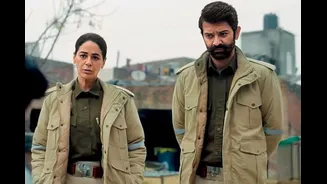What is the story about?
Understanding and managing conflict is essential for thriving relationships. This piece offers a practical guide to navigating disagreements, improving communication, and building stronger bonds.
Conflict: A Reality
Conflict, much like the lively debates over chai vs. coffee, is an unavoidable part of any relationship. It's not inherently negative; rather, it's an opportunity for growth and understanding. Recognizing that disagreements are natural is the first step toward navigating them effectively, much like preparing for a monsoon season in Mumbai.
Communication is Key
Clear and respectful communication is the cornerstone of resolving conflicts. This involves active listening, expressing your feelings honestly without blame, and validating your partner's perspective. Imagine it as navigating the bustling streets of Delhi – it requires patience, clarity, and understanding of local customs.
Understanding Perspectives
Empathy plays a crucial role in conflict resolution. Try to understand your partner's viewpoint, even if you disagree. Consider it as appreciating different regional cuisines in India – they're all diverse but equally rich in their own way. Stepping into their shoes can bridge the gap and foster compromise.
Finding Common Ground
Focusing on shared goals and values is vital. Identify areas of agreement and build from there, just like uniting to celebrate a festival like Diwali. Look for solutions that meet both parties' needs. Compromise and collaboration are key ingredients in a healthy, long-lasting relationship.
Seeking External Help
Sometimes, disagreements are too hard to navigate alone. Seeking guidance from a therapist or counselor, like asking a trusted elder for advice, can provide valuable tools and techniques for healthier communication and conflict resolution. It's a sign of strength, not weakness, to ask for help.



















